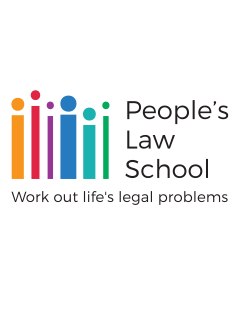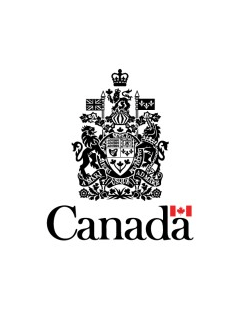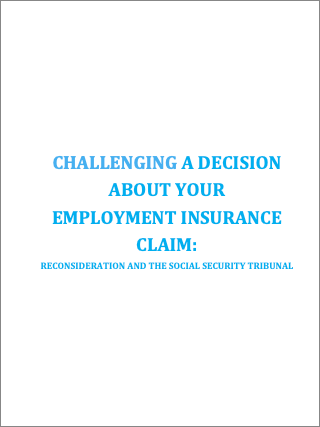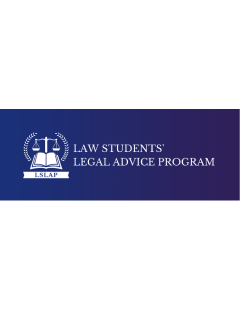Employment insurance & benefits
Last reviewed November 2025 by the Clicklaw editors
Employment insurance, or EI, is not just for people who were laid off. There are EI benefits for those on maternity or paternity leave, for unemployed seasonal workers, and for those who take time off work because they’ve become sick or taken on the role of caregiver. Self-employed people can sign up for the program if they pay premiums.
There are also benefits if your employer filed for bankruptcy or owes you wages or severance pay after you lose your job.
Explore the links below to reliable online guides and tools and to organizations in BC. They have been chosen by librarians at Courthouse Libraries BC.
Selected resources
Click on a topic to see a list of resources.
|

Applying for Employment Insurance
People’s Law School
In Canada, the government offers financial support to people who are without work. Learn whether you are eligible for employment insurance benefits, and the steps to apply for benefits.
Last reviewed October 2025

EI Maternity and Parental Benefits
Government of Canada
Explains who is eligible, how to apply, how much you could receive, and how long benefits last.
Last reviewed March 2024

Employment Insurance Caregiving Benefits and Leave
Government of Canada
Information on the three types of caregiving benefits for family members who are critically ill, critically injured, or in need of end-of-life care. These are family caregiver benefit for children, family caregiver benefit for adults, and compassionate care benefits. It explains who is eligible to apply, how to apply, how much you could receive...
Last reviewed October 2025

EI Benefits for Self-Employed People
Government of Canada
Explains EI for people running their own business or controlling more than 40 percent of their corporation’s voting shares. It explains the types of special benefits, how to register for the self-employed program, what documents you need to submit to the CRA, and how to withdraw from the program.
Last reviewed October 2025

Farm Workers and Rights at Work
People’s Law School
Explains farm workers’ rights under BC’s main employment law. Topics include who is considered a farm worker under the law, and what happens if an employer doesn’t follow the minimum standards. It explains what benefits you're eligible for, and more.
Last reviewed October 2025

Employment Insurance (EI) — Information for Employers
Government of Canada
Explains employers’ responsibilities in ensuring the EI program is administered fairly and efficiently. The information includes preparing records of employment, deducting and remitting EI premiums, and the EI premium reduction program, as well as supplementing EI benefits. The page also links to help if you need to reduce your workforce.
Last reviewed October 2025

If You Quit Your Job
People’s Law School
Quitting your job voluntarily affects your legal rights to things like employment insurance benefits and compensation you are owed. Learn your rights if you quit, and what steps you can take to protect yourself. Includes information about employment contracts, giving notice, outstanding wages, constructive dismissal, and more.
Last reviewed October 2025

About the Wage Earner Protection Program (WEPP)
Government of Canada
You may be eligible to receive a payment under this program if your employer has filed for bankruptcy or is subject to receivership, and you’re owed wages, vacation pay, termination pay, or severance pay.
Last reviewed October 2025

Employment Insurance Appeal Process at a Glance
Social Security Tribunal of Canada
If Service Canada made a decision about your employment insurance and you don’t agree with it, you can ask them to reconsider, and then appeal to the Social Security Tribunal (SST) if Service Canada does not change their decision. This page explains how to do this, including the levels of appeal and the various deadlines.
Last reviewed October 2025

Challenging a Decision about Your Employment Insurance Claim: Reconsideration and the Social Security Tribunal
Community Legal Assistance Society (CLAS)
This guide will tell you how to challenge a decision about your employment insurance claim. It covers the entire appeal process, including internal reconsideration and the Social Security Tribunal.
Last reviewed October 2025

Employment Insurance Benefits and Leave
Government of Canada
This page covers EI benefits and leave information. It links to how to apply, to submit a report, to view claims, and also links to the EI forms. Other benefits include regular, caregiving, fishing, sickness, maternity and parental, benefits for the self-employed, and benefits for Canadians living abroad.
Last reviewed October 2025

LSLAP Manual: Employment Insurance
Law Students’ Legal Advice Program (LSLAP)
This chapter on employment insurance is from the manual used by law students handling cases at LSLAP’s legal clinics. It provides an overview of how to apply for EI (as well as how to appeal) and summarizes the law relating to qualification requirements, benefit rates, penalties, and offences.
Last reviewed November 2025

LSLAP Manual: Employment Law
Law Students’ Legal Advice Program (LSLAP)
This chapter on employment law is from the manual used by law students handling cases at LSLAP’s legal clinics. It provides an overview of the law relating to employment standards, wages and overtime, leaves of absence, termination of employment, and wrongful dismissal.
Last reviewed November 2025

LSLAP Manual: Welfare (Income Assistance) Law
Law Students’ Legal Advice Program (LSLAP)
This chapter is from the manual used by law students handling cases at LSLAP’s legal clinics. It explains the types of welfare benefits available, including income assistance, disability assistance, and hardship assistance, along with eligibility requirements and rates. It also discusses recent changes in BC welfare law.
Last reviewed November 2025